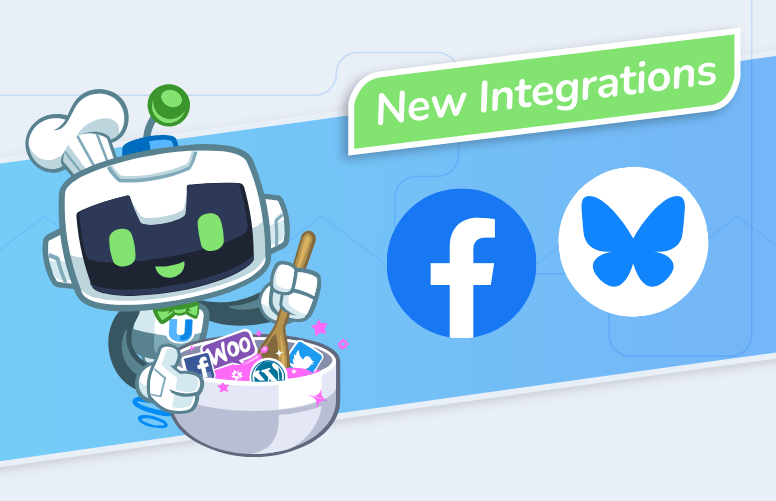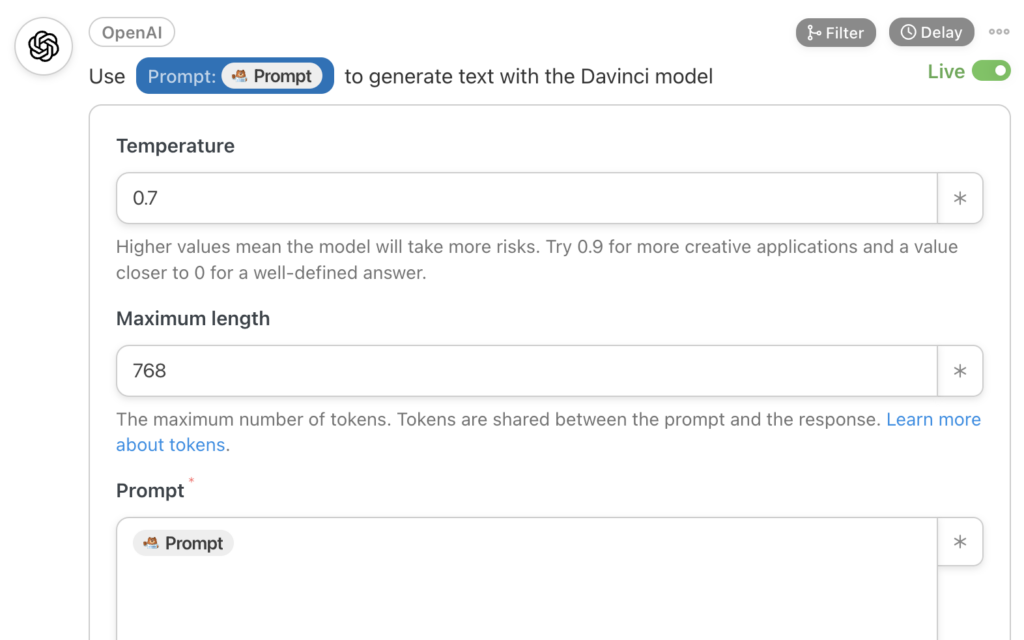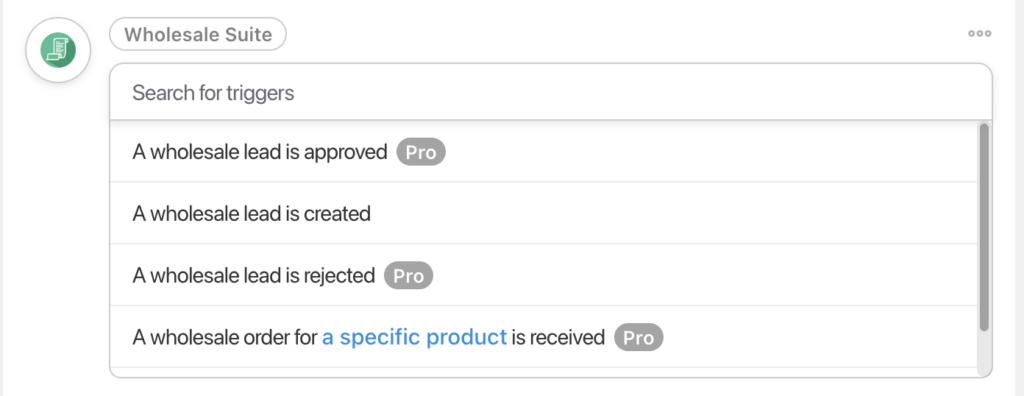Automator 6.4 : Publicités Facebook, Bluesky et puissantes améliorations de l'apprentissage en ligne
Uncanny Automator 6.4 introduit les publicités Facebook Lead, Bluesky et des tonnes de nouveaux déclencheurs puissants et…
Following yesterday’s release of Automator 4.10, we’re excited to round out some of the new integrations with the Uncanny Automator Pro 4.10 update. Here’s what’s new in our premium plugin:
Using OpenAI’s ChatGPT models for content generation, the free Automator release included support for 3 OpenAI models: Curie, Babbage and Ada. Today’s Pro release also adds support for Davinci, the most capable GPT-3 model (but also the slowest and most expensive). For limited AI text generation where quality is important, this model will generally be preferred.
Please note though that sending prompts to Davinci may have slow response times, often in the 15- to 30- second range. Consider lowering the maximum number of tokens in your action if you do run into any timeout issues (for more information about action settings, make sure to check out the Knowledge Base article).
The introduction of Wholesale Suite in our free version was interesting, and for many users still very useful, but the additions in Pro are where the support gets a lot more interesting. Here’s what’s new in Pro:
That last action is going to resonate with our Uncanny Groups users; we get questions all the time about pricing products for instructors vs. school administrators vs. end users. All of them open up great new use cases. Whether it’s related to initiating workflows for new leads, removing CRM tags or access from rejected leads or deactivating a wholesale customer based on a certain number of refund requests, the new additions will be really useful to a lot of sites.
LearnDash, our most popular Automator integration, gains 2 more triggers and 1 action. Here’s what’s new:
Let’s talk about the quiz triggers first. While we have had triggers related to scores, points, pass/fail and other things for a long time, what was missing were question level triggers. Maybe there’s a quiz question like, “Do you consent to sharing your results?” and it initiates a workflow based on the user’s selection, or maybe a key question for assessment knowledge transfer initiates a remedial workflow when answered incorrectly.
The new action targets some niche use cases around group and course assignments. While LearnDash doesn’t support it, there are some sites where LearnDash > course mappings are overridden to make course associations to a group apply to reporting only, not student access, and the new action to unenroll users helps with course management at the individual level. Another use case applicable to more sites would be using userless groups as course templates. Here’s an example:
Suppose a LearnDash site offers courses for sale to the public as well as courses specific to several organizations. Say the user is individually enrolled in 5 courses total; 3 public, 2 linked to their org. Suppose too there are 50 total org-specific courses, but users are free to enroll in them individually. When the user leaves the org, this action (to remove users from courses associated with a group) could run to revoke access to org-specific courses but leave the public enrollments untouched. It helps in situations where perhaps users could pick and choose any of the 50 courses to take, where it wouldn’t make sense to make groups for all of the courses/users because of the volume of possibilities.
We had fallen a bit behind in feature parity compared to BuddyBoss (BuddyBoss usage is about 20X higher amongst Automator users), but in this release we’re catching up by adding the following triggers to BuddyPress:
There are lots of great use cases where these new triggers might be useful, from notifying admins in Slack of a request to join a group to tracking the creation of groups in Airtable to sending members leaving a group an exit survey and removing CRM tags from their contact record.
This one was a popular request and a lot of work: we now support JetEngine Custom Post Types. We heard from more than a few users that our support for meta boxes was insufficient and that support for CPT meta fields was a pain point. As such, we’re excited to role out more comprehensive JetEngine support for a full variety of field types.
Groundhogg and LearnDash users, we heard your concerns and responded.
Groundhogg gains conditions for “a user has a tag” and “a user does not have a tag”, while LearnDash gets a condition for “a user is not enrolled in a course”. Maybe you only want to send course completion certificates to users with a particular Groundhogg tag who are also not enrolled in a remedial course. Now you can do it!
That wraps up the highlights for the Uncanny Automator Pro 4.10 release. We hope you find the new additions useful!

Uncanny Automator 6.4 introduit les publicités Facebook Lead, Bluesky et des tonnes de nouveaux déclencheurs puissants et…
Nous utilisons des cookies pour améliorer votre expérience sur notre site. En utilisant notre site, vous acceptez l'utilisation des cookies.
Gérez vos préférences en matière de cookies ci-dessous :
Les cookies essentiels permettent des fonctions de base et sont nécessaires au bon fonctionnement du site Web.
Les cookies statistiques collectent des informations de manière anonyme. Ces informations nous aident à comprendre comment les visiteurs utilisent notre site web.
Les cookies marketing sont utilisés pour suivre les visiteurs sur les sites web. L'objectif est de diffuser des publicités pertinentes et attrayantes pour chaque utilisateur.


Cet article a 0 commentaire